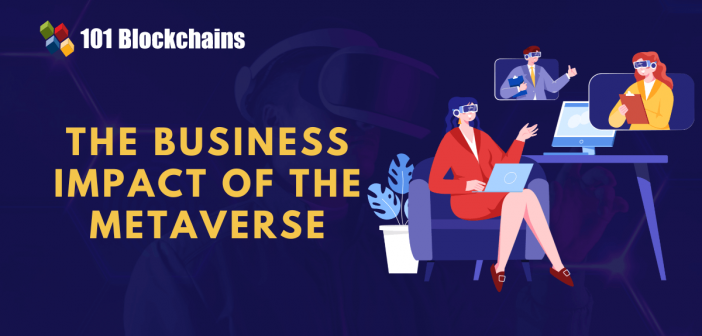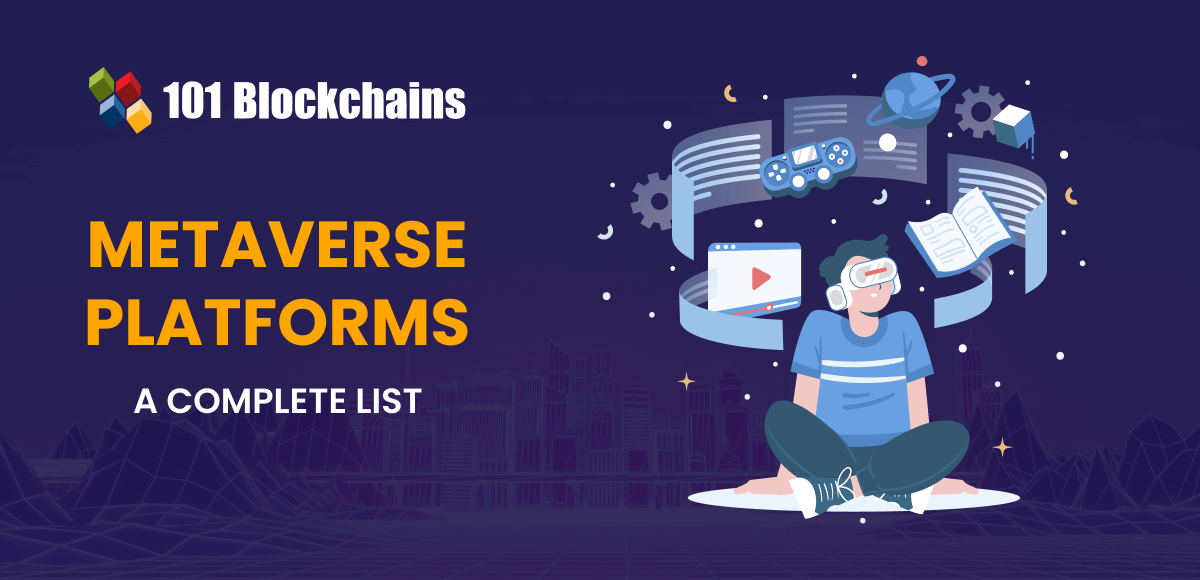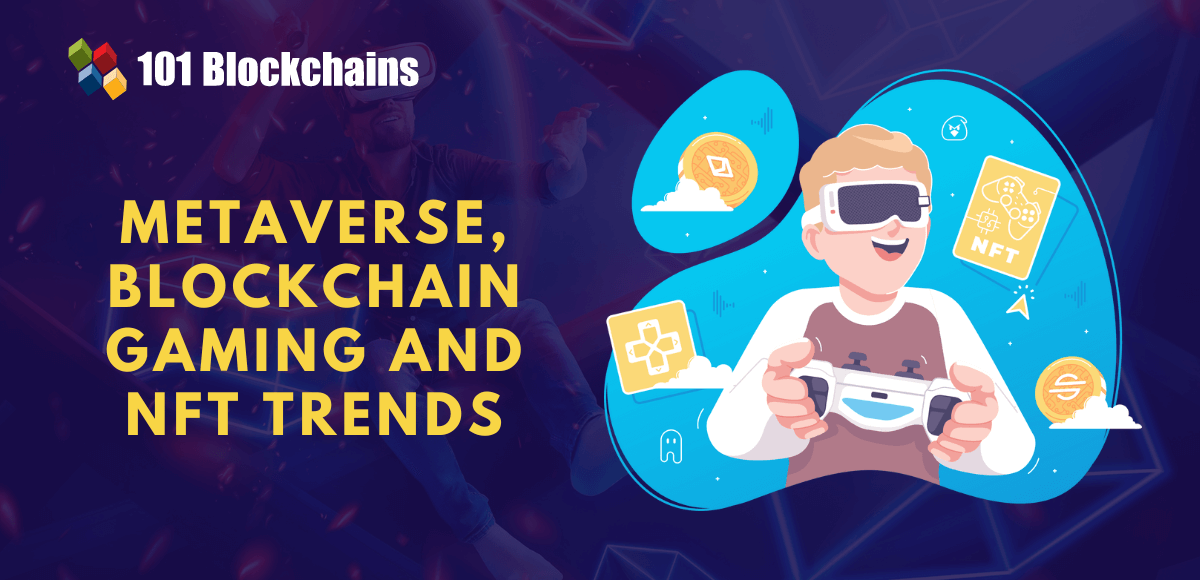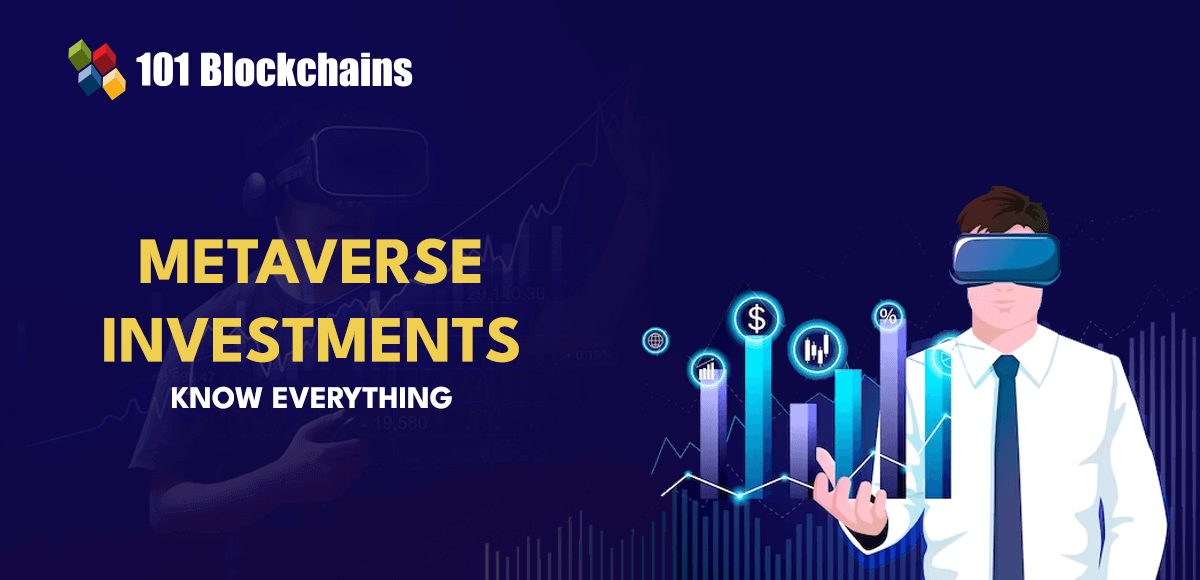Learn how blockchain truly works, master key definitions, and uncover what makes smart contracts so "smart." Dive into the fundamentals, gain valuable insights, and start your blockchain journey today!

- Metaverse
Georgia Weston
- on May 18, 2023
What Is The Business Impact Of The Metaverse?
The metaverse is one of the most elusive technology trends which have gained recognition in recent times. As you read this post, the metaverse continues to find new definitions, literally as well as figuratively. At the same time, questions about the potential and longevity of the metaverse business impact have been gaining traction in the tech landscape.
Most people believe that it could be a virtual parallel to the real world, while some users think that the metaverse can be a three-dimensional representation of the internet. On the other hand, critics have quashed the possibilities of the metaverse developing into something meaningful in the future. According to critics, the metaverse is only a rebranded version of gaming experiences with immersive gameplay and other interactive elements.
The metaverse is not just a 3D version of the internet or a new gaming platform with immersive experiences. You can find valuable insights on business impact of the metaverse by referring to the ways in which metaverse can bridge the gap between physical and virtual worlds. The metaverse can also offer access to multiple interoperable virtual spaces for different digital services and user activities, such as social interaction. Let us find more details about the effect of metaverse technology on businesses in the following post.
Why Is Metaverse Important for Businesses?
One of the first aspects for understanding the effect of metaverse technology on business is the clear definition of metaverse. You can find answers to “What is the impact of metaverse on business?” by reflecting on the core building blocks of the metaverse technology stack. The four important components in the metaverse include platforms, content and experiences, enablers, and connectivity infrastructure and hardware.
The platforms in metaverse technology stack point at the game engines, while the infrastructure and hardware refer to devices and networks used for the metaverse. In addition, examples of enablers in metaverse technology point to security and payment mechanisms. Interestingly, the metaverse technology stack has different layers in each core building block, which help in defining all metaverse experiences.
Big technology companies, private equity firms, venture capitalists, popular brands, and startups seek new ways to capitalize on business opportunities with the metaverse. As a matter of fact, the impact of metaverse is clearly visible in the investments by private equity firms and venture capitalists in the metaverse. Within the first half of 2022, the metaverse industry had garnered investments worth over $120 billion. Such a massive investment in metaverse shows that businesses want to know how the metaverse can help them capture new value streams.
Learn about the fundamentals, key elements and business opportunities of the metaverse technology through this Metaverse E-book: An Introduction To Metaverse
What Does the Market Reveal about Value Creation in Metaverse?
A detailed outline of metaverse fundamentals and how the technology works can help you figure out the potential of metaverse. On the other hand, beginners can have doubts regarding the possibilities of metaverse technology serving exceptional value benefits. Therefore, you need to find out the factors which drive the interest of businesses in metaverse technology.
You can come across different factors supporting the applications of a metaverse in business, including the assurance of security and complete control of users. Which factors have been responsible for drawing more users and businesses to the metaverse? The answer can lead you to different factors which have a direct impact on the enthusiasm of investors.
The noticeable factors which encourage businesses and investors to put their money in metaverse use cases include the following,
- Consumer-centric brand marketing and engagement in metaverse.
- Technological advancements in infrastructure are needed for running the metaverse.
- Readiness of the marketplace for metaverse technology.
- A new generation of metaverse applications focused on different areas such as socialization, virtual learning, commerce, and many other important use cases.
Report by McKinsey
A recent report by McKinsey provides in-depth insights on the different aspects which determine metaverse business value and its implications for the future of metaverse. The report highlights results of a survey, revealing that almost 60% of consumers are comfortable with the use of an early variation of the metaverse.
The report also points out that almost 95% of business leaders believe that the metaverse can impose a positive effect on their business operations. Some of the notable industries which are likely to go through transformation on the shoulders of the metaverse include healthcare, consumer and retail, and media industry.
One of the most significant highlights in the findings from the McKinsey report focuses on the predicted value of the business impact of metaverse. The report states that the metaverse business impact could generate almost $5 trillion in economic value by 2030. Metaverse technology is gradually developing as a proven choice for accessing new growth opportunities in different industries. The metaverse can not only offer new business models and services but also presents a new communication channel for B2B and B2C environments.
Want to get an in-depth understanding of metaverse concepts? Join the Standard & Premium Plans and get free access to Metaverse Fundamentals Course Now!
Value of Metaverse for Different Businesses
The estimate of $5 trillion for value generation in the metaverse suggests that it is a revolutionary technology for businesses. At the same time, it is also important to identify the types of businesses which are most likely to generate highest value. You can review the details regarding business impact of the metaverse for different industries.
For example, the McKinsey report on value creation in the metaverse suggests that metaverse technology can generate economic value in the range of $2 trillion to $2.6 trillion by 2030. The virtual learning market is likely to achieve value improvements ranging between $180 billion and $270 billion by 2030. Similarly, the gaming sector can generate economic value ranging from $108 billion to $125 billion in the same forecast period.
Build your identity as a certified blockchain expert with 101 Blockchains’ Blockchain Certifications designed to provide enhanced career prospects.
What is the Effect of Metaverse on Business?
The review of the capabilities of metaverse for generating economic value for businesses offers evidence for the potential of metaverse technology. Metaverse evolved as a fictional concept in novels and movies and transitioned into a full-fledged technology for creating organizations of the future. Business executives have to think about the best ways in which they can capitalize on the potential of metaverse.
You can find the answers to “What is the impact of metaverse on business?” by reflecting on the different ways in which it can change business operations. For example, brands have revised their marketing efforts by providing simulated presentations of new products before launching them in the market. Here are some of the notable ways in which innovation in the metaverse can affect the operations of businesses.
-
Business Training Advantages
The first use case of the metaverse for businesses would refer to transformation of business training sessions. Metaverse applications, along with AI and the technological improvements in virtual reality, augmented reality, and extended reality, can improve online training sessions. The applications of metaverse in business for skill development and business training programs can introduce interactive experiences for employees.
The opportunity for business training in an immersive environment with the metaverse can help employees cross the barriers between theory and practice. At the same time, it is also important to consider another highlight of using the metaverse for business applications such as business training. Metaverse technology applications in business training could create a disruptive impact on almost 23 million jobs by 2030.
-
Support for Remote Work
A global pandemic taught the importance of digital transformation to the whole world. Popular brands and big tech companies were quick to adapt to the change by using their massive pools of resources. On the other hand, discussions about metaverse business value also point to the possible ways in which it can support remote work.
Even after the pandemic, many businesses follow a remote or hybrid work culture. Remote work has some plausible benefits for employees as well as employers. However, it can also lead to some setbacks, such as communication gaps and limitations on interactions between colleagues.
The metaverse can provide a solution to the problems of communication in remote work environments. Remote work has earned a reputation for having a negative impact on collaboration. For example, a lack of in-person conversations in real-time can affect communication and interaction among employees.
You can notice how the impact of metaverse can create an enhanced and immersive workplace experience in remote environments. Employees can use their VR headsets to access their workplace in the metaverse through digital avatars. The metaverse can provide better scope for communication and collaboration with facilities for interactions among users in real time.
-
New Shopping Experiences for Customers
Businesses would also seek effective ways to capitalize on the value improvements through changes in shopping behavior of consumers. The review of business impact of the metaverse would be incomplete without reflecting on the perspective of users. Brands could rely on the metaverse for creating virtual storefronts, which allow clients to browse products as if in a real store. Customers can also access features for new product trials without leaving the comfort of their homes. Businesses can rely on the metaverse to capitalize on the possibilities for immersive and highly engaging retail experiences.
Some of the popular brands which have used the metaverse to transform shopping experiences include Nike, Gucci, Louis Vuitton, and Balenciaga. The value of initiatives for transforming shopping experiences in the metaverse would be visible in developing trust.
For example, fashion brands could come up with new collections in their virtual storefront on the metaverse. Customers can use the storefront in the metaverse to try out the clothes on their digital avatars. As a result, customers can get exactly what they want while developing positive associations with the brand at every stage of the shopping experience.
-
Using NFTs for Monetizing Digital Assets
Businesses can leverage the metaverse technology to participate in a single market economy without depending on geographical locations. For example, stock markets and trading platforms in the metaverse can offer access to a broader base of investors. The applications of metaverse in business can help in monetizing assets with the use of NFTs.
Blockchain technology offers a sturdy foundation for NFTs with ease of managing ownership and maintaining precision in the records. The metaverse can provide the opportunity for transactions of real estate, automobiles, artwork, and different digital assets in the form of non-fungible tokens.
How will NFTs in the metaverse affect the operations of businesses? The effect of non-fungible tokens on the market also points to how NFTs have garnered the attention of younger audiences. Brands would look for opportunities to capitalize on the impact of metaverse NFTs on emerging target audiences for their business.
For example, Adidas Originals generated around $23.5 million from the sale of 30,000 NFTs in the ‘Into the Metaverse’ collection. You can notice how brands can explore new revenue streams in the metaverse other than sales of products and services.
Want to become an NFT Expert? Enroll Now: NFT Fundamentals Course
-
Brands Become More Visible
The metaverse is likely to attract a massive user base, especially from the younger generation. However, the best thing about the metaverse is that it offers a new platform to interact with your target audience. Traditional methods of marketing, such as billboards and digital marketing best practices, have crucial advantages for improving a brand’s reputation. However, the problem with existing forms of marketing is the lack of involvement of the customers.
The metaverse business impact could ensure that customers can become active participants in the branding initiatives of different companies. For example, customers can get a first-hand impression of the different features and functionalities of products. As a result, the metaverse can offer long-term advantages by building strong relationships with customers through realistic experiences.
Want to learn Metaverse concepts quickly? Check out Now Metaverse Flashcards and Metaverse FAQs
Conclusion
The outline of different ways in which metaverse can affect business operations shows how metaverse would serve a positive impact. The examples of brands utilizing metaverse technology for different operations offer proof of the ways to transform businesses with metaverse. Interestingly, the estimates of metaverse business value for different sectors also prove the potential of metaverse technology.
Businesses must learn about the best practices for using metaverse to transform conventional models of operations. You can start with training on metaverse fundamentals and develop your skills in metaverse technology for revolutionary business transformation. Start your journey of becoming a metaverse professional for businesses with trusted training resources right now.






